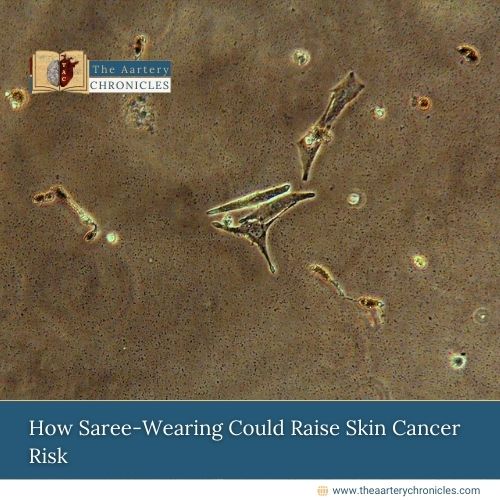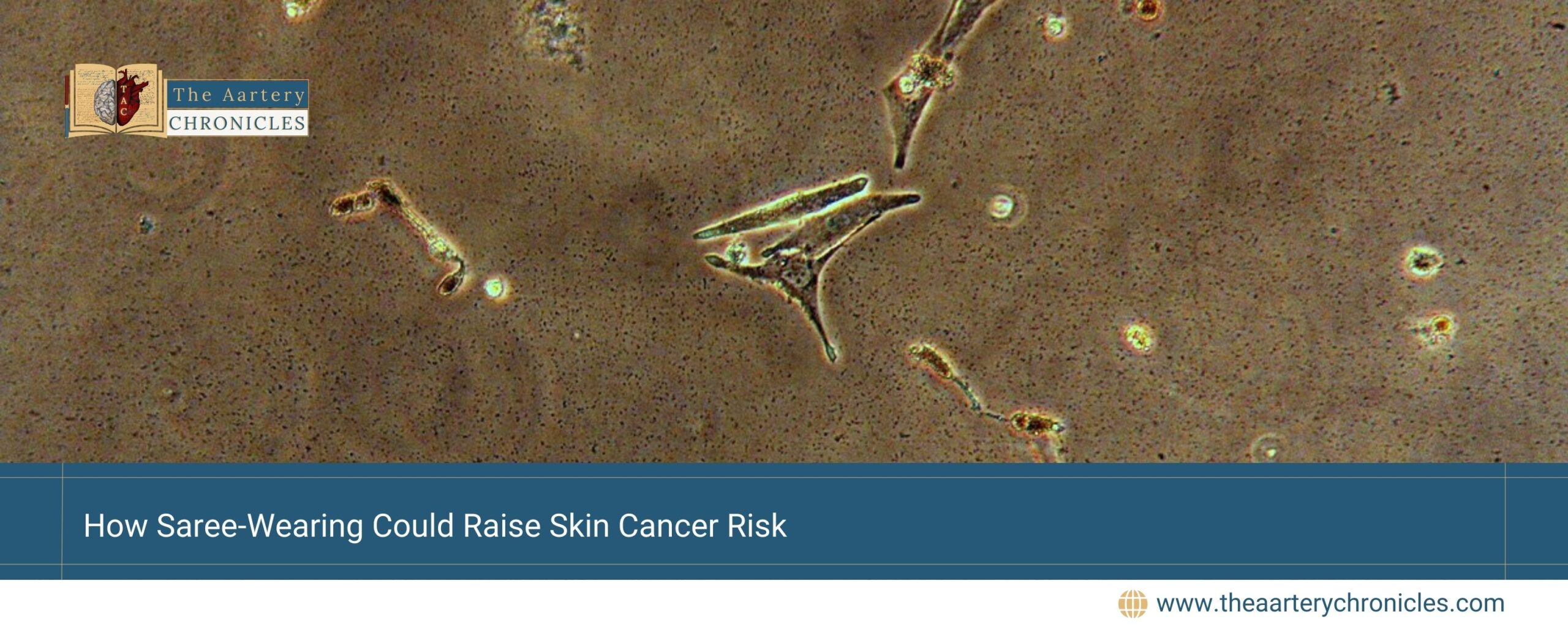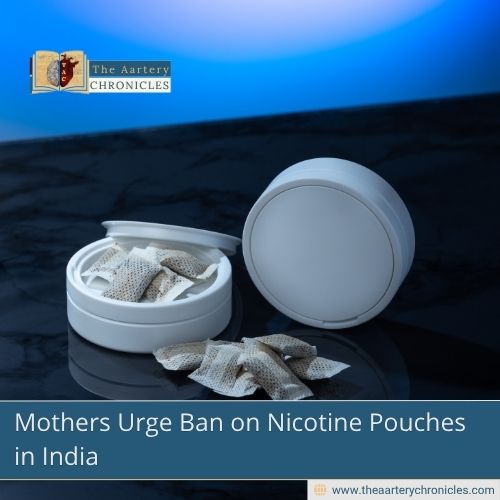

How Saree Wearing Could Raise Skin Cancer Risk
Introduction
For many Indian women, wearing a saree is a daily tradition. However, health experts have issued a caution regarding the way sarees are worn, particularly with the tight binding of the petticoat at the waist, as it may lead to skin cancer. Doctors from Bihar and Maharashtra recently highlighted cases of women who developed skin cancer linked to this practice, urging a shift to wearing looser undergarments to reduce risk.
Saree Cancer: The Link Between Tight Petticoats and Skin Damage
Doctors at Jawaharlal Nehru Medical College in Wardha and Madhubani Medical College in Bihar have coined the term “petticoat cancer” for cases where skin cancer develops from constant friction and pressure on the skin. They reported that tightly tying the waist cord of the petticoat under a saree—especially in traditional or rural styles—can lead to chronic skin inflammation, non-healing ulcers, and, in some cases, cancerous growth.
Real-Life Cases of Saree-Related Skin Cancer
In one instance, a 70-year-old woman developed a persistent, painful ulcer on her side that resisted healing for 18 months. A biopsy revealed squamous cell carcinoma, also known as a Marjolin ulcer, a type of skin cancer. She had worn her petticoat tightly tied under a Nauvari saree, which led to continuous pressure and irritation.
Similarly, a woman in her late 60s, who had worn a tightly bound saree for over 40 years, developed a similar ulcer that had spread to her lymph nodes by the time she was diagnosed.
Understanding Marjolin Ulcers
Marjolin ulcers are aggressive cancers that typically develop in chronic, non-healing wounds. This type of ulcer is often seen in burn scars, chronic ulcers, and other long-standing skin wounds. While the exact cause of the malignant transformation is unknown, chronic irritation and inflammation are believed to be key factors.
Continuous Pressure Leads to Ulcers and Cancer Risk
Doctors explain that constant pressure at the waist can lead to the skin becoming thin and damaged, eventually resulting in ulcer formation. Such ulcers often fail to heal completely because the ongoing pressure prevents the skin from repairing itself. Over time, this chronic, non-healing wound may become cancerous.
How to Reduce Your Risk
Health experts recommend that women avoid tightly tying their petticoats or waist cords to reduce the risk of skin damage. Instead, wearing a loose petticoat or clothing with minimal waist pressure can help prevent friction and allow any skin issues to heal effectively.
If you experience persistent skin issues, it’s essential to seek medical advice promptly.
Source: Inputs from various media Sources

Priya Bairagi
I’m a pharmacist with a strong background in health sciences. I hold a BSc from Delhi University and a pharmacy degree from PDM University. I write articles and daily health news while interviewing doctors to bring you the latest insights. In my free time, you’ll find me at the gym or lost in a sci-fi novel.








